
Did you know that there are different stages of acne?
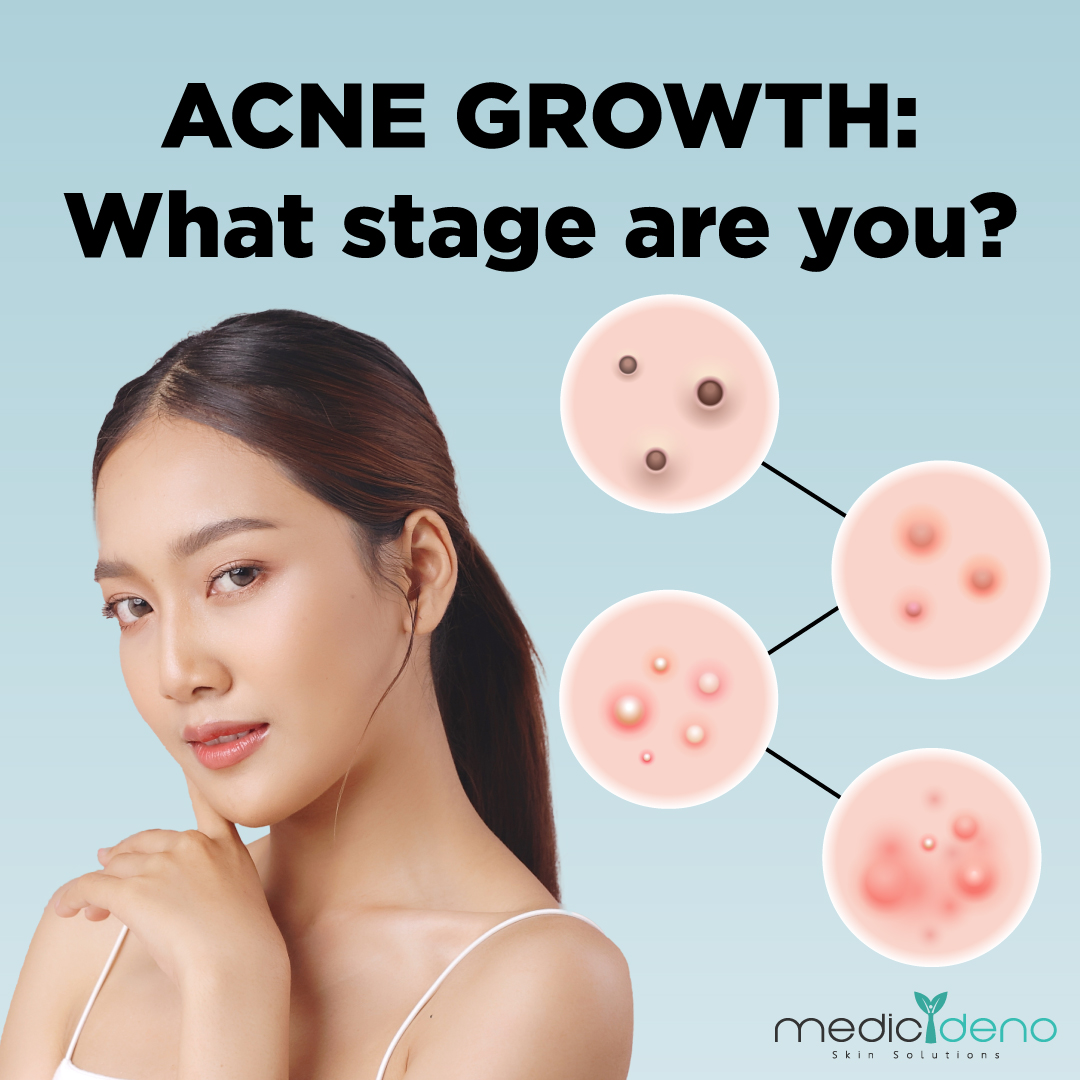
Generally, acne occurs when hair follicles become clogged with oil, dead skin cells, and bacteria. Acne can manifest in different forms and severity levels, each requiring a tailored approach to treatment.
Let's explore the various stages of acne and how to effectively address them:
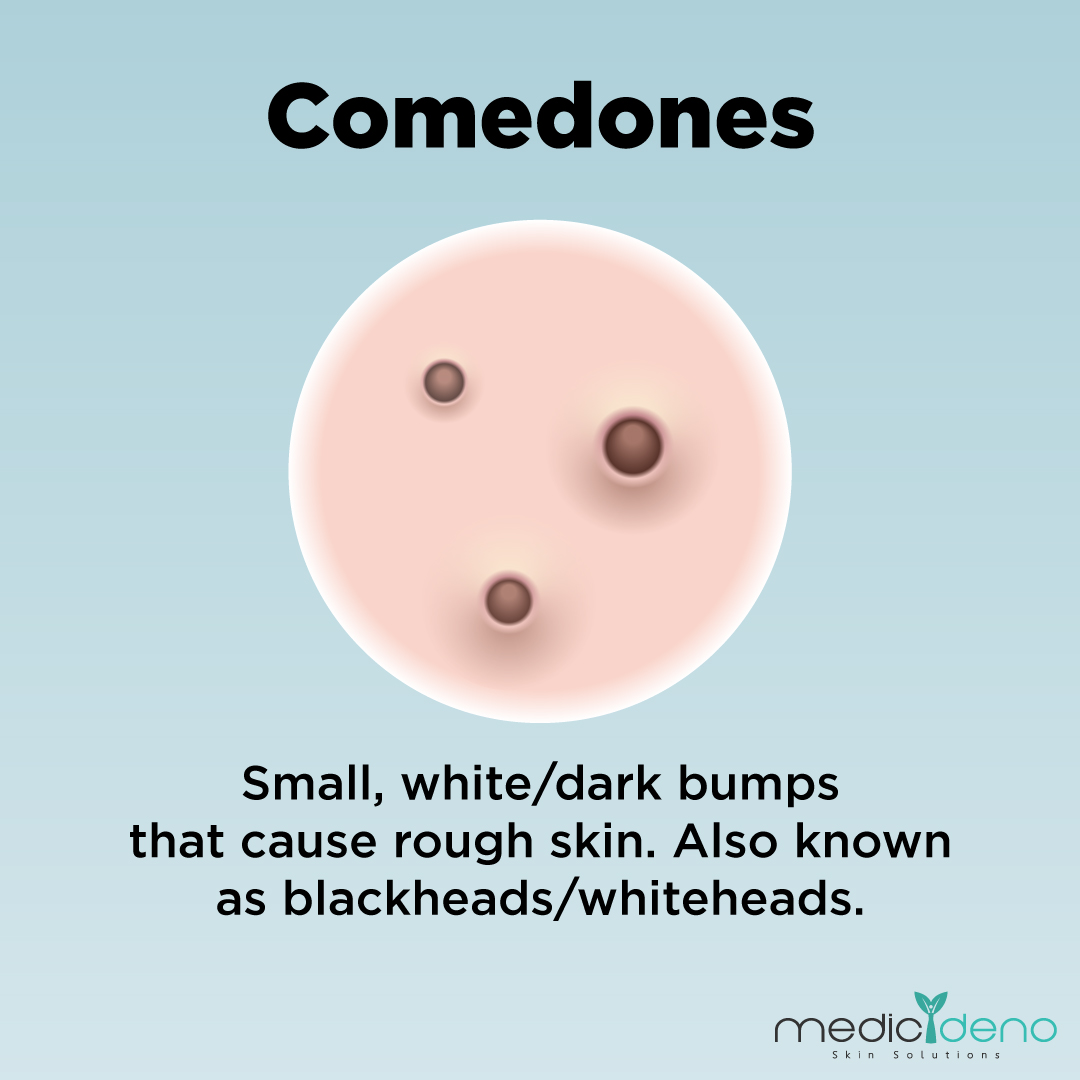
Comedones are non-inflammatory acne lesions that develop when hair follicles become clogged with oil and dead skin cells. Comedones come in two forms - whiteheads, which are closed comedones, and blackheads, which are open comedones.
How to treat comedones:
- Keep the skin clean by using a mild cleanser.
- Exfoliate regularly to remove dead skin cells and prevent clogged pores.
- Use skincare products with chemicals like salicylic acid or benzoyl peroxide which helps in clearing clogged pores and minimising the growth of comedones.
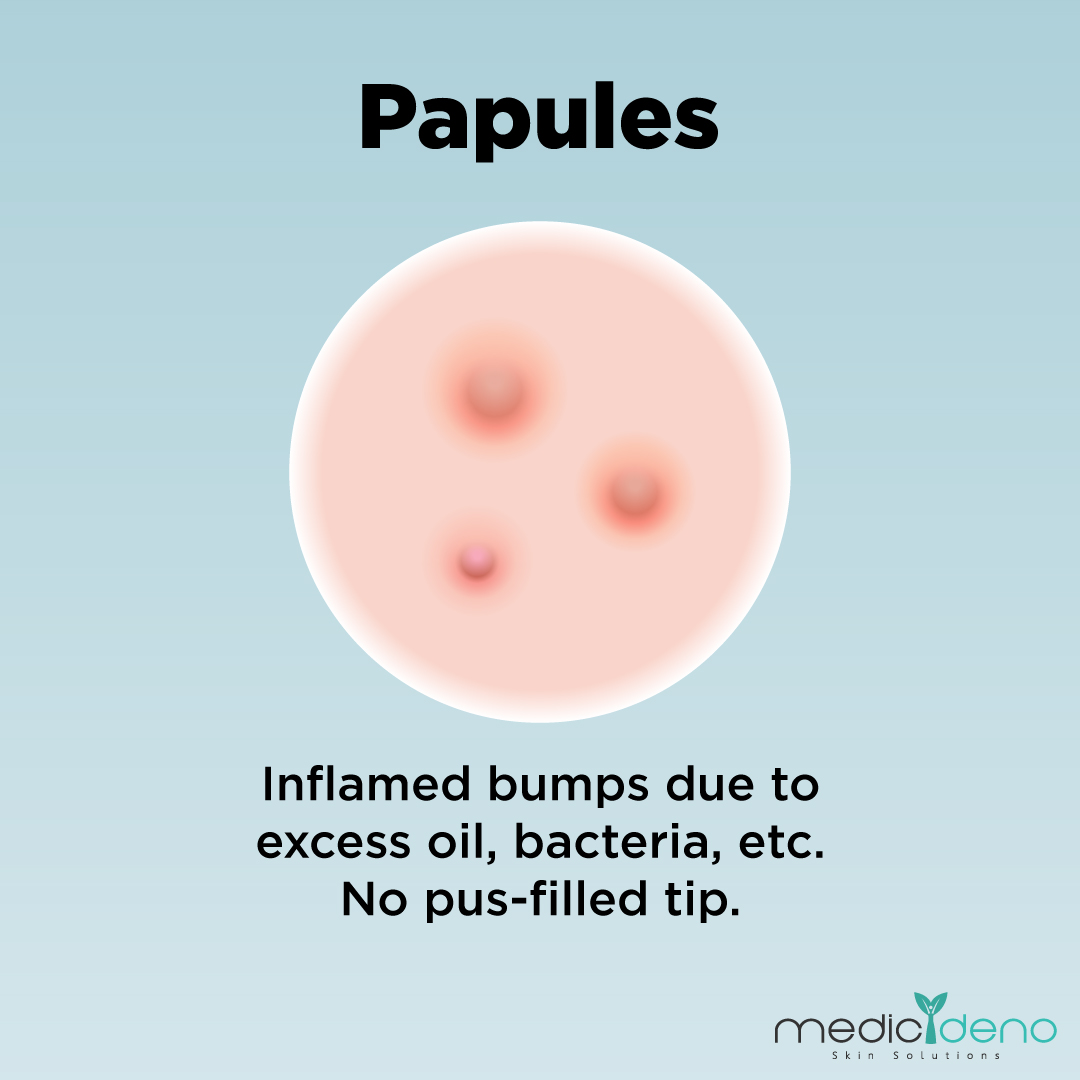
Papules are small, red bumps that form when comedones become inflammed. These lesions do not contain pus.
How to treat papules:
- Avoid picking or squeezing papules as it can lead to further inflammation and scarring.
- Ingredients like benzoyl peroxide or tea tree oil can help reduce inflammation and kill acne-causing bacteria.
- Applying a warm cloth help alleviate any discomfort.
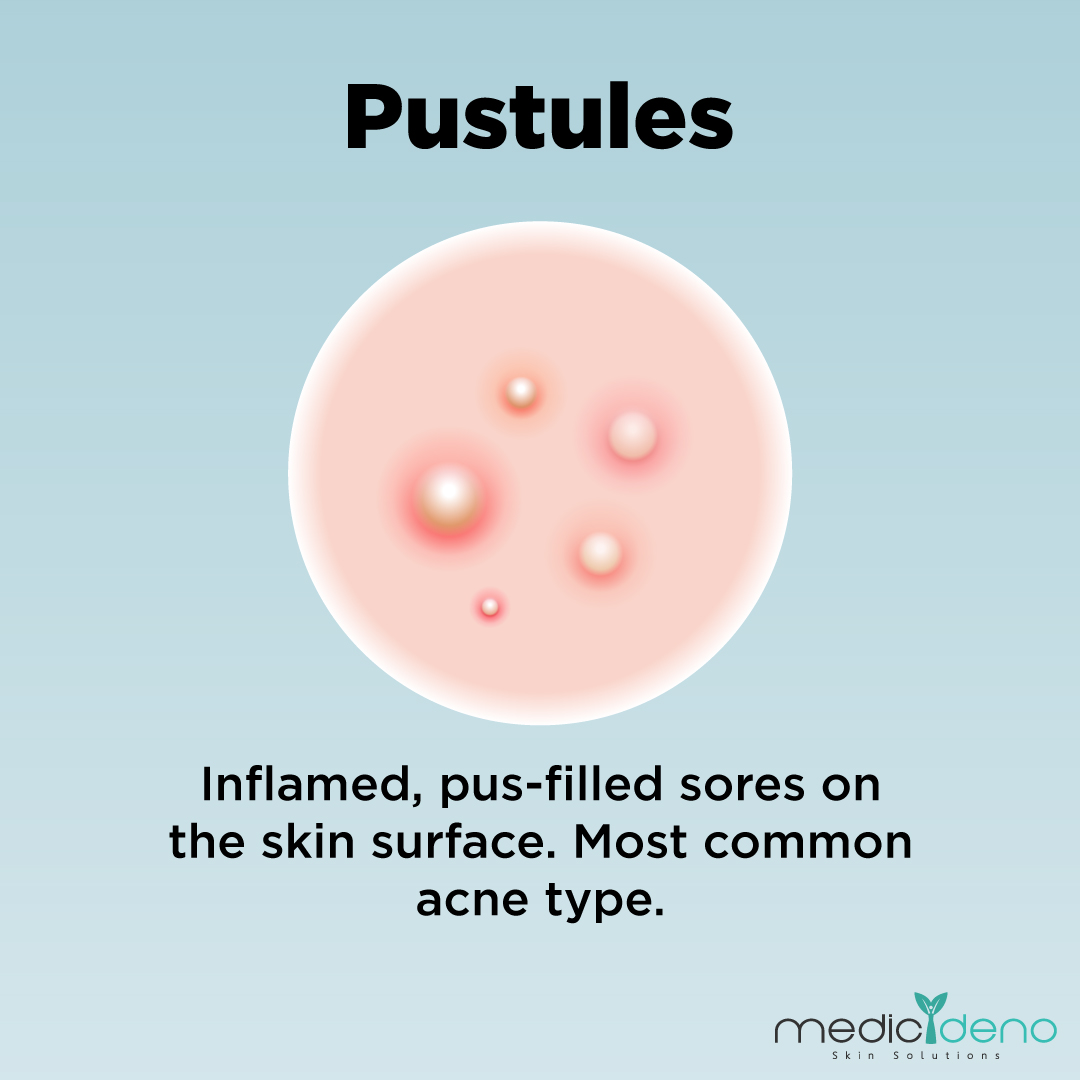
Pustules are similar to papules but contain pus. They are characterised by redness and a visible white or yellow center. Just like papules, you shouldn’t pop pustules as this can cause infection and scarring.
How to treat pustules:
- Gently cleanse the affected area with a mild cleanser.
- Ingredients like benzoyl peroxide or topical antibiotics can help reduce inflammation and kill bacteria.
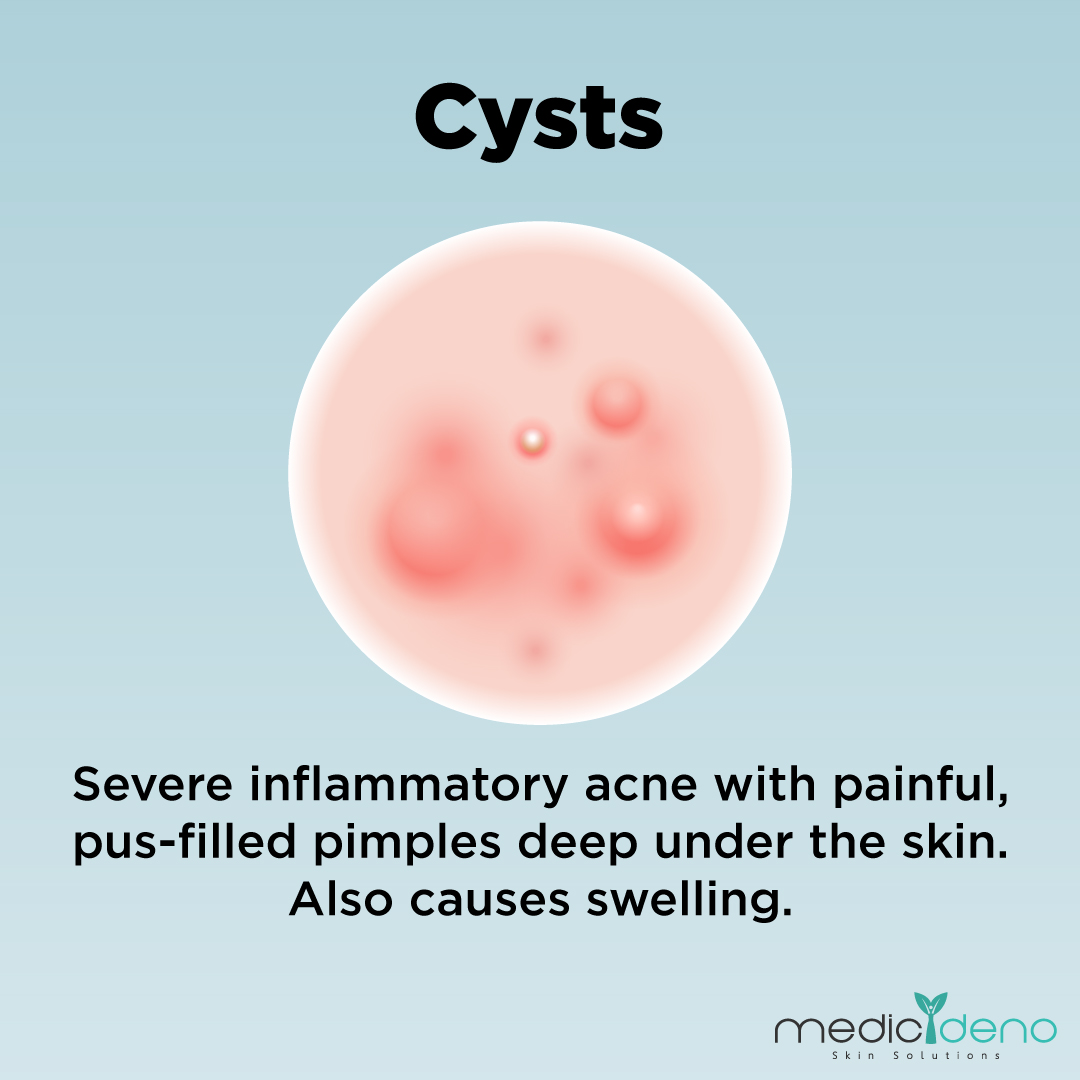
Cysts are large, painful, and deep-seated acne lesions that develop when the infection goes deeper into the skin. They often require medical intervention for proper treatment.
If you have cystic acne, it is best to consult with a dermatologist who can recommend appropriate treatment options. Dermatologists may prescribe oral medications or perform procedures like cortisone injections or drainage to address cystic acne effectively.
Now that you're aware of the different stages of acne, it's time to love the skin you're in! When you love your skin, it means taking good care of it.
Book your slot now for a special price!




